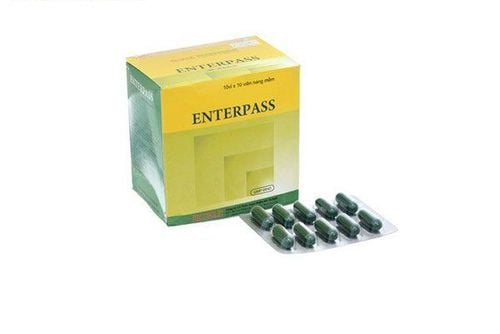This is an automatically translated article.
Stool softeners are used in the treatment and prevention of constipation. Stool softeners work by increasing moisture in the stools, making them softer and easier to pass.
1. What is the mechanism of stool softeners?
Stool softeners, also known as laxatives, are used in the treatment of constipation. Stool softeners are usually the calcium or sodium salts of docusate, which is a surfactant that reduces surface tension and allows water to seep into the stool mass, making stools softer and easier to pass.
Stool softeners are available in the form of softgels, oral solution or a mixture of rectal enemas. The drug works by mechanism of action locally in the large intestine. Usually, the time to use the drug is to take it before going to bed at the recommended dose on the package or as prescribed by your doctor. Most stool softeners will soften your stools and trigger the need to defecate within 12-72 hours (3 days).
2. Are stool softeners safe?
Stool softeners are not absorbed into the bloodstream and are well tolerated. The side effects of this group of drugs are very rare, some of the side effects are mild such as:
Nausea Cramping abdominal pain Flatulence Irritation in the throat, this condition can happen if you use emollients liquid stools orally. In addition, if you experience any other more serious side effects such as difficulty swallowing, breathing difficulties, fever, skin rash, abdominal cramps or vomiting,... seek medical attention immediately. take timely remedial measures.
Stool softeners are probably safe for pregnant women and young children. Long-term users of stool softeners may find they tolerate the medication quickly and need to increase the dose. Therefore, when using stool softeners, it is necessary to consult a doctor.

Điều trị táo bón bằng thuốc có thể gây buồn nôn cho người bệnh
3. Drug interactions
Using stool softeners is a way to soften stools when constipated, but this medicine can interact with some other drugs such as:
Mineral oil: The docusat salt in stool softeners can increase absorption. Mineral oil. Aspirin: Using a stool softener with aspirin may increase your risk of side effects. Medicines containing phenolphthalein In short, stool softeners are used in the treatment of constipation by increasing the moisture content of the stool, thereby making it easier to pass stools. Although the effect is slow, it shows many benefits for patients who need to limit excessive straining when defecating. Like any other medicine, stool softeners can still cause certain side effects. Therefore, before using the drug, it is necessary to consult a doctor.
Please dial HOTLINE for more information or register for an appointment HERE. Download MyVinmec app to make appointments faster and to manage your bookings easily.













